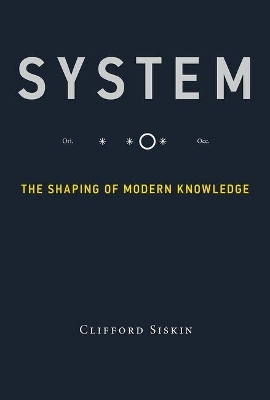
System
MIT Press (Verlag)
978-0-262-03531-6 (ISBN)
- Keine Verlagsinformationen verfügbar
- Artikel merken
Previous engagements with systems have involved making them, using them, or imagining better ones. Siskin offers an innovative perspective by investigating system itself. He considers the past and present, moving from the "system of the world" to "a world full of systems." He traces the turn to system in the seventeenth and eighteenth centuries, and describes this primary form of Enlightenment as a mediator of political, cultural, and social modernity-pointing to the moment when people began to "blame the system" for working both too well ("you can't beat the system") and not well enough (it always seems to "break down"). Throughout, his touchstones are: what system is and how it has changed; how it has mediated knowledge; and how it has worked in the world.
Clifford Siskin is Henry W. and Alfred A. Berg Professor of English and American Literature at New York University, and Director of the Re:Enlightenment Project. Geoffrey C. Bowker is Professor and Director of the Evoke Lab at the University of California, Irvine. He is the coauthor (with Susan Leigh Star) of Sorting Things Out: Classification and Its Consequences and the author of Memory Practices in the Sciences, both published by the MIT Press. Paul N. Edwards is Professor in the School of Information and the Department of History at the University of Michigan. He is the author of The Closed World: Computers and the Politics of Discourse in Cold War America (1996) and a coeditor (with Clark Miller) of Changing the Atmosphere: Expert Knowledge and Environmental Governance (2001), both published by the MIT Press.
| Erscheinungsdatum | 22.11.2016 |
|---|---|
| Reihe/Serie | Infrastructures |
| Zusatzinfo | 19 b&w illus. |
| Verlagsort | Cambridge, Mass. |
| Sprache | englisch |
| Maße | 152 x 229 mm |
| Themenwelt | Geisteswissenschaften ► Sprach- / Literaturwissenschaft ► Anglistik / Amerikanistik |
| Naturwissenschaften | |
| Sozialwissenschaften ► Soziologie | |
| ISBN-10 | 0-262-03531-6 / 0262035316 |
| ISBN-13 | 978-0-262-03531-6 / 9780262035316 |
| Zustand | Neuware |
| Haben Sie eine Frage zum Produkt? |
aus dem Bereich


